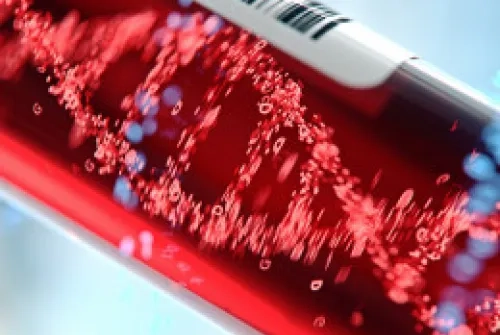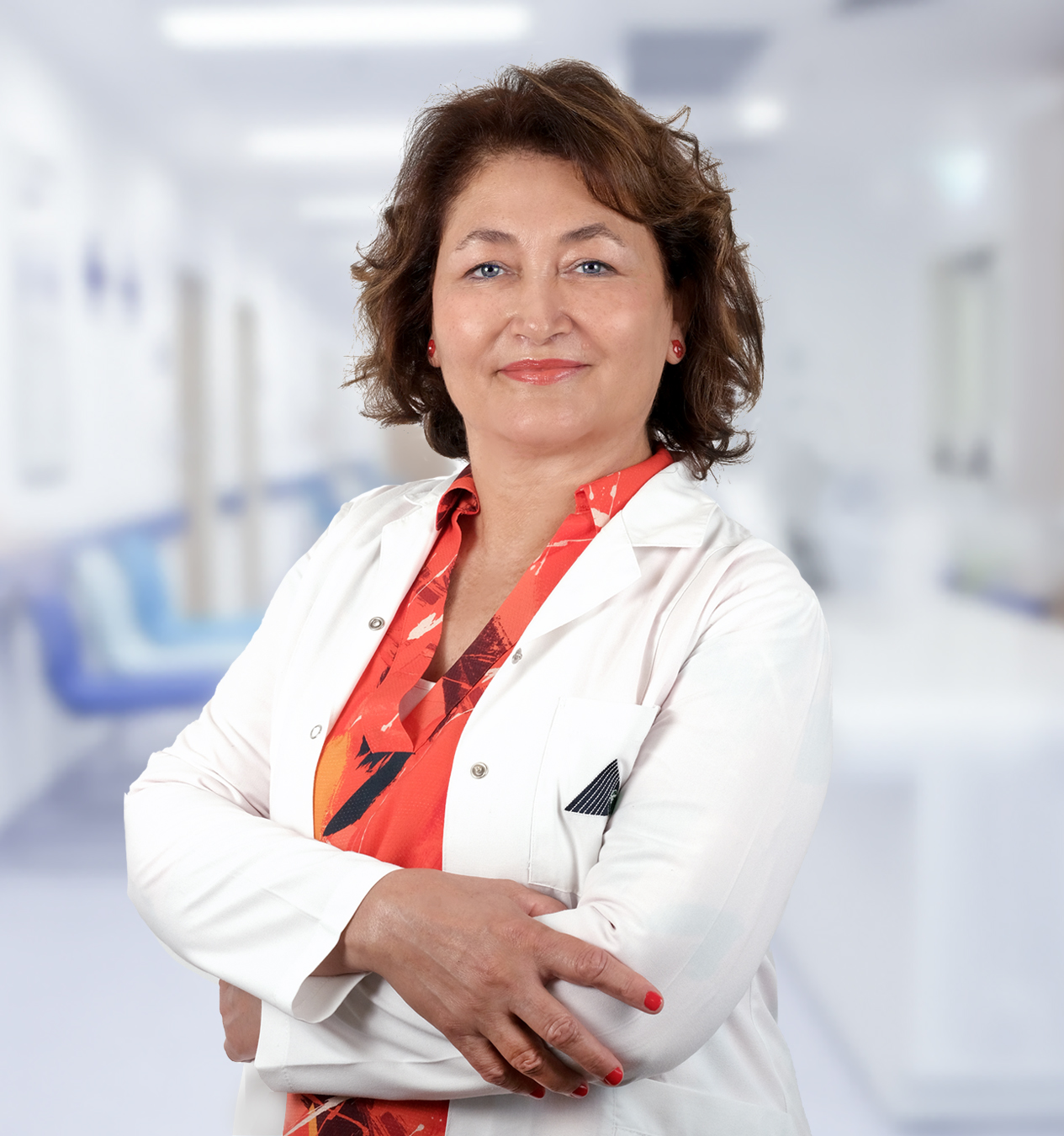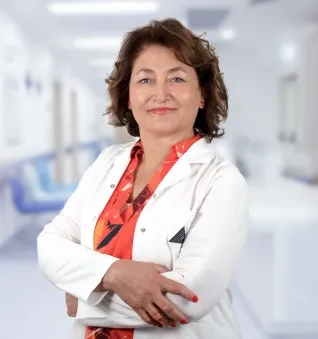Alo Yeditepe
Alo Yeditepe
Thalassemia Spreads from the Mediterranean to the Whole of Europe with Migration!
“Thalassemia,” Also known as “Familial Mediterranean Anemia,” is very common in countries bordering the Mediterranean. Stating that Turkey is one of these countries, Yeditepe University Koşuyolu Hospital Infectious Diseases and Clinical Microbiology Specialist Prof. Dr. Meral Sönmezoğlu gave important information about the disease on May 8th, World Thalassemia Day.
Stating that there are approximately 4,500 patients receiving thalassemia treatment in our country, Prof. Dr. Meral Sönmezoğlu: “More importantly, there are surrogate families that cause the emergence of the disease of those patients. There are approximately 1 million 300 thousand thalassemia carriers in Turkey. The importance of this number is this. If thalassemia patients give birth to children, there is a 50 percent chance that these children will have thalassemia. About 365,000 children with thalassemia are born every year.”
“Pre-Marriage Testing Must be Mandatory in Risky Areas”
Drawing attention to the fact that there are approximately 1 million 300 thousand carriers, Prof. Dr. Meral Sönmezoğlu made the following warnings:
“These people are carriers and healthy. There are no signs that they are sick or carriers. Then it is possible to identify these people with tests to be performed before marriage. These tests are very good, very good to recommend, but not mandatory. These tests are only recommended. Those who do not have these tests and do not bring the results can also get married. These tests should be mandatory in many risky areas. The thalassemia trait in Turkey is 2.1 percent. But in the Mediterranean, especially in Antalya, this rate is 13 percent, and in the Aegean, it is 6 to 7 percent. Carriers are higher in these cities. They are more likely to get married. Therefore, it is very important to give genetic counseling to people and tests before marriage.”
“Patients Take Two Units of Blood Every Month”
Drawing attention to the fact that regular blood transfusions have been performed on the patient since infancy in the treatment of thalassemia, Prof. Dr. Sönmezoğlu: “Little babies take blood into their little bodies every month. If they do not, there is a risk of death. We are giving iron with blood transfusions. This goes on for the rest of their lives. They take two units of blood every month. This is a huge burden. Infection can be transmitted during a blood transfusion. These people will take blood regularly, but this blood has many risks. Not everyone who donates blood is healthy. Doctors who follow thalassemia patients should form a voluntary and healthy donor group and try to donate blood from there.”
“Patients Must Receive Psychological Support”
Stating that the patient experienced a major psychological trauma after receiving the diagnosis, Prof. Dr. Sönmezoğlu added that patients should receive psychological support.
“This situation should not be ignored. While giving the patient blood transfusion treatment, we should not neglect psychotherapy. It is necessary to take precautions to keep the psychology of that patient high. Even if you choose a very good treatment, the patient may not come for it. You also need to provide psychological support. It is also important to monitor one's life. One needs psychological help so s/he can move on.”
“Mediterranean Anemia Spreads to Europe Through Migration”
Stating that thalassemia started to spread from the Mediterranean basin to Europe as a result of the migrations in recent years, Prof. Dr. Meral Sönmezoğlu: “The world is no longer described as 5 geographical regions. It is a serious migration. So, the genes got mixed up. Genes unique to the Mediterranean region have already been passed on to European countries. They began to find the genes of the Mediterranean country. Among them is the gene for thalassemia. People living in European countries need genetic testing. Cases of thalassemia have now begun to be seen in European countries. Now genes have begun to emerge in European citizens as well.”
11 centers in Turkey that follow thalassemia patients examine their own patients. As the blood transfusion increases in a thousand patients, they see that these patients are much more likely to get Hepatitis B, C, and HIV after the age of 20.
About
Faculty and Year of Graduation:
Medical Faculty of Ankara University, 1984
”
See Also
- What is Hepatitis B? What are its symptoms? How is it Transmitted?
- What is HMPV Virus? HMPV Symptoms and Ways of Transmission
- Why Is the Flu Lasting Longer This Year?
- What Precautions Should Be Taken Against the Cold Epidemic?
- Don't Be Late Fighting Against Diseases
- Antibiotics Kill Beneficial Bacteria, Not Viruses
- What is Hepatitis? What are the Symptoms and Treatment Methods?
- Symptoms and Treatment of Tick Bites
- Summer Infections
- Precautions Must Be Taken Against Loss of Life Due To Infection in Thalassemia
- Information on H1N1 (Swine Flu)
- Summer is Coming... Beware of food poisoning!
- Our Taboos Affect the Increase in the Number of HIV-Positive Cases in Turkey
- Strep A Symptoms and Treatment
- Do Not Put a Cigarette Butt or Pour Olive Oil or Liquid Soap on the Tick
- Reheat the Food You Cooked Only Once!
- HIV Can Be Hidden for 10 Years without Any Symptoms!
- 290 Million People Live Without Knowing They Have Hepatitis
- Things to Consider When Touching Meat at Eid
- What Is Anthrax Disease?
- The Way to Fight AIDS is to Raise Awareness First
- Still Not Too Late For Flu Vaccine
- What is Rhinovirus?
- Fighting with Thalassemia: Meral Yılmaz
- Early Treatment of Crimean Congo Hemorrhagic Fever is Vital
- Approximately 3 Million Patients Need Blood Transfusions Every Year in Turkey
- When to Get the Flu Vaccine
- Antibiotics Account For 14% of Prescription Costs
- West Nile Virus Replaces Malaria
- It Is Necessary to Try to Be Healthy in order to Be Protected
- A New Flu Outbreak is Expected Every 10 Years
- 63% of Vector-Borne Diseases are Caused by Lyme Disease
- Experts Warn About Flu Risk
- Mosquito Infection Risk
- Why aren’t Antibiotics Working Any More?
- The World Raises an “Alarm” on Antibiotic Resistance!
- What is COVID-19?
- The Mask Requirement was Removed and the Importance of Social Distance Increased!
- How to Prevent COVID-19 in School-Going Children
- WHO (World Health Organization) Warns for Antibiotic Resistance!
- Who Is Threatened by Monkeypox?
- Ways to Prevent Coronavirus
- Swine Flu / H1N1
- Life Returns to Normal with Caution
- What is Monkeypox Virus? What Are the Symptoms of the Monkeypox Virus?
- What is Lyme Disease?
- How to Tell if You Have a Mild Coronavirus?
- Pay Attention to These Rules for COVID-19
- Hand Sanitizer Usage Guide
- The Priority Rule for the Protection from Summer Infections is Hygiene
Alo Yeditepe




